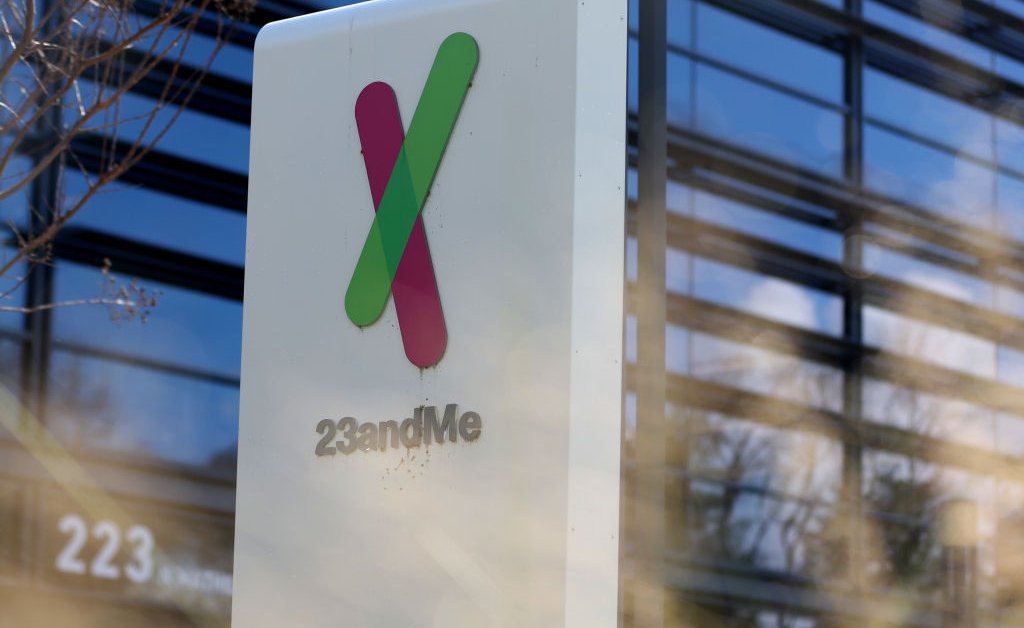
Whoa, hold onto your hats, folks! The genetic testing giant, 23andMe, has filed for bankruptcy. This isn’t just another corporate stumble; it’s a seismic event shaking the foundations of the biotech and AI worlds. Why? Because 23andMe sits on a treasure trove – or perhaps a Pandora’s Box – containing the genetic data of 15 million people. Imagine that: a database brimming with the very blueprint of life, ripe for the picking by hungry AI companies.
The potential here is staggering. Think of it as the ultimate big data gold rush, where the nuggets aren’t gold but the secrets of our very being. For AI companies, this is like finding a map to a hidden city of unimaginable riches. This data could unlock breakthroughs in personalized medicine, paving the way for treatments tailored to individual genetic profiles. We’re talking about a revolution in disease prediction, prevention, and cure, a future where illness is fought on a deeply personal, genetic level. The possibilities are as limitless as the human genome itself, a breathtaking canvas upon which AI can paint a masterpiece of personalized healthcare.
But here’s the rub: this glittering gold mine is heavily guarded by a dragon of immense power – privacy concerns. The ethical implications of handing over such intimate, personal information to AI companies are enormous. We’re not just talking about names and addresses; we’re talking about the very code that makes each of us unique. Imagine the potential for misuse: discrimination based on genetic predispositions, the creation of powerful, personalized surveillance tools, or even the potential for genetic manipulation.
This isn’t some futuristic dystopia; this is a very real and present danger. The sale of 23andMe’s data could unleash a firestorm of controversy, leaving a trail of ethical and legal wreckage in its wake. The risks are so significant that the potential rewards could be overshadowed by the sheer weight of public backlash. We’re talking about a potential PR nightmare of epic proportions; the kind that can sink even the most ambitious companies.
The situation is a delicate balancing act. On one hand, the potential for scientific advancement is undeniable, a tantalizing glimpse into a future of personalized medicine that could save millions of lives. On the other, the potential for abuse is equally terrifying, a chilling glimpse into a world where genetic information becomes a weapon of control and discrimination.
So, what happens next? Will the data be sold off to the highest bidder, potentially unleashing a torrent of ethical dilemmas and public outrage? Or will cooler heads prevail, leading to a more responsible approach that prioritizes privacy and ethical considerations? This isn’t just a business decision; it’s a societal one, a crossroads where the future of personalized medicine meets the very real concerns of individual privacy. It’s a high-stakes game of chance, where the potential rewards are enormous, but the risks are equally devastating.
The bankruptcy of 23andMe isn’t just a financial failure; it’s a crucial moment that forces us to grapple with the profound implications of genetic data in the age of artificial intelligence. It’s a wake-up call, urging us to develop robust regulatory frameworks and ethical guidelines before this powerful technology gets out of control. Otherwise, this gold mine could easily turn into a toxic wasteland.
The coming months will be crucial in shaping the narrative. Will this be remembered as a cautionary tale, a cautionary tale about the unchecked power of data in the wrong hands? Or can we find a path forward that allows for responsible innovation while safeguarding individual rights? Only time will tell.
| Potential Benefits | Potential Risks |
|---|---|
| Breakthroughs in personalized medicine | Genetic discrimination |
| Improved disease prediction and prevention | Privacy violations |
| Development of targeted therapies | Surveillance and misuse of data |


